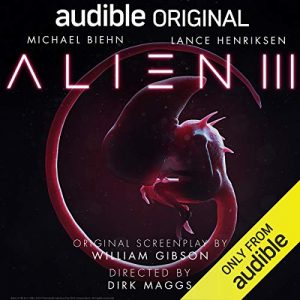 Meanwhile, another Audible dramatic presentation, because that’s a thing I do now? It’s not really my fault, both of these were monthly freebie giveaways, and I still haven’t finished the Malazan side book I’m reading, due mostly to the previously mentioned horror show that is my professional life. Although to be fair, I would have spent a hard-earned credit on this one.
Meanwhile, another Audible dramatic presentation, because that’s a thing I do now? It’s not really my fault, both of these were monthly freebie giveaways, and I still haven’t finished the Malazan side book I’m reading, due mostly to the previously mentioned horror show that is my professional life. Although to be fair, I would have spent a hard-earned credit on this one.
The thing is, I don’t really like Alien3. I mean, as a horror movie it’s actually fine, and as an Alien franchise movie, well, the truth is I like the world so much that I cannot fairly judge the film’s individual merits, but I’m pretty sure I like it in that context too. But I absolutely hate it as a sequel to Aliens, because it undoes everything that movie accomplished, from a character perspective. Hey, says James Cameron, let’s give the Final Girl from Alien a tragic backstory, where she loses her entire family over this mess because she’s lost in stasis for over fifty years, and now her daughter, older than Ripley and a grandmother in her own right hates and resents her over something Ripley had no control over. And then let’s send her to an amazing showdown with the creatures that took everything away from her, and have her claw her way back to a family of her own, over the corpses of the family members of the alien bitch that took it all away in the first place. That is narrative gold, and even as much as people mostly approve of Aliens, I still think it is badly underestimated. Top five movie, probably.
And then Alien Cubed comes along and says, haha, nope, what family, they all died in a random crash landing because all we really care about is Ripley v Alien, character development is for other genres. So yeah. In context, I really loathe the movie.
Enter William Gibson, who apparently wrote a script for Alien III, which for reasons unknown to me was disregarded in favor of the dreck above. If I had to guess, it’s because he delved a little too deeply into the corporatist framework of the previous two movies. Which, I mean, is what you expect out of the father of cyberpunk, right? Anyway, I had heard someone mention that his screenplay was floating around the internet, but I never got around to seeking it out. And now, I no longer need to!
The audiobook version is really just a movie performance without the images. So they spend a little more time dialoguing descriptions of what they can see to each other over the radio, which means a little less time in quiet claustrophobic scenes that drag on just long enough to stay scary. It weighs in at a little under two hours, and while there are aspects I would have tinkered with here and there, I am left saddened that I never got to see this movie, and even moreso that I will never get to see or hear its sequels. Because not only is it a better concept for a movie, it’s a better world-building trajectory for the Alien franchise than we will ever see.
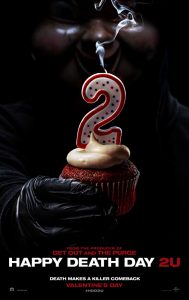 At the very beginning of
At the very beginning of 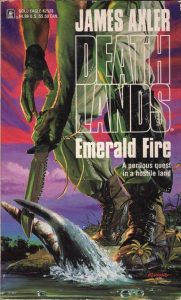 I haven’t read anything but comics in about a week, because I’m behind on this book review. The irony is, of course: in what world am I worried about the quality of a Deathlands review that nobody cares about?
I haven’t read anything but comics in about a week, because I’m behind on this book review. The irony is, of course: in what world am I worried about the quality of a Deathlands review that nobody cares about?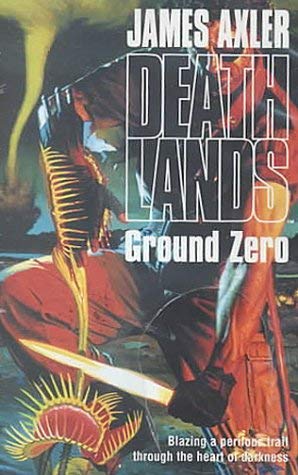 Sometimes the title of a Deathlands book will make me scratch my head in puzzlement, since it seems like they just took a couple of random words, one of them semi-complex, and strung them together, irrespective of the plot of the book. Other times, such as
Sometimes the title of a Deathlands book will make me scratch my head in puzzlement, since it seems like they just took a couple of random words, one of them semi-complex, and strung them together, irrespective of the plot of the book. Other times, such as 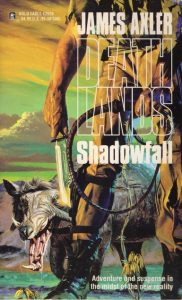 By now you know the Deathlands drill, or have been ignoring reviews of the series and will ignore this one too. The main things that stand out about
By now you know the Deathlands drill, or have been ignoring reviews of the series and will ignore this one too. The main things that stand out about 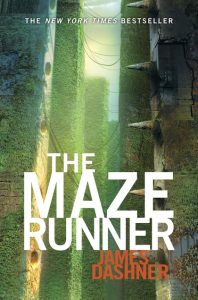 I finished
I finished 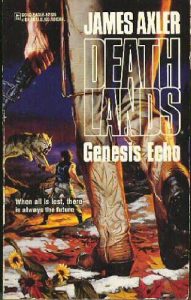 Cool story:
Cool story: 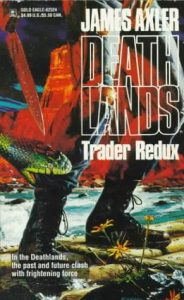 Because Mary is way behind me, it’s too soon to start the next Liveship book. And because
Because Mary is way behind me, it’s too soon to start the next Liveship book. And because 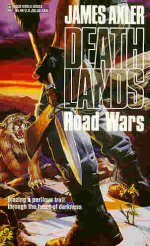 Vacation nearly always equals Deathlands. And on the bright side, I didn’t run out of book before the plane landed, if only by about 20 minutes of reading.
Vacation nearly always equals Deathlands. And on the bright side, I didn’t run out of book before the plane landed, if only by about 20 minutes of reading.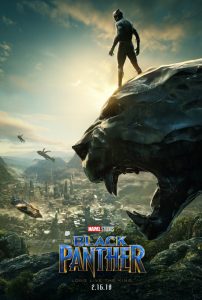 It took me until Monday night to see
It took me until Monday night to see